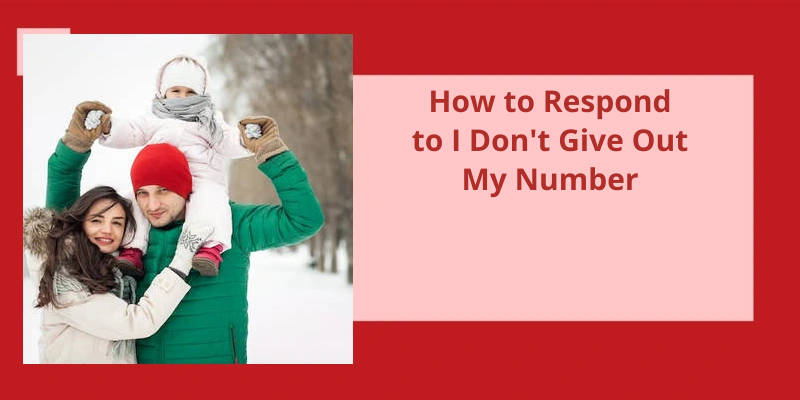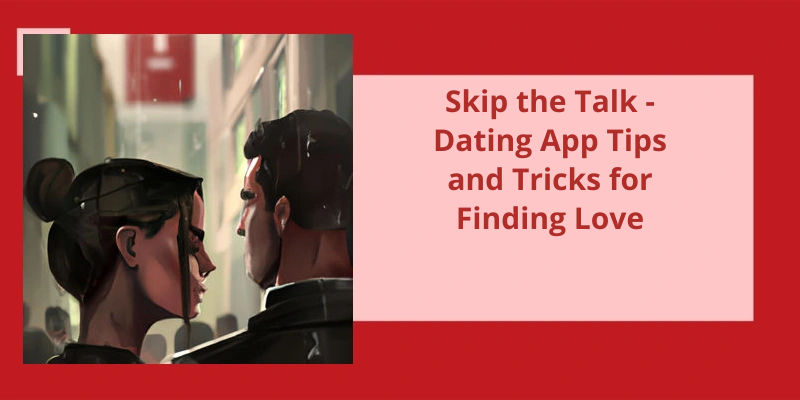In a world where communication is primarily conducted through various digital platforms, the act of sharing personal phone numbers has become a common practice. However, not everyone feels comfortable divulging this piece of information to just anyone who asks for it. It’s completely reasonable to value your privacy and choose not to give out your number. It's important to remember that asserting your boundaries isn’t rude or unreasonable. If someone requests your number and you prefer not to share it, a simple response of "I'm sorry, I don't give that number out" is sufficient. You don't owe them an explanation or justification. It's your decision, after all. If you still wish to maintain a means of communication, consider offering an alternative method such as email, which allows for the exchange of messages without the pressure of sharing personal contact information. By setting these boundaries, you can protect your privacy and communicate on your own terms.
What to Say if Someone Asks for Your Phone Number?
When faced with the situation of someone asking for your phone number, it’s important to consider your comfort level and boundaries. If it’s someone you feel comfortable communicating with and would like to stay in touch, a simple response like, “Sure, heres my number” would suffice. This implies a willingness to engage in further conversation and relationship building.
However, if it’s someone you don’t feel comfortable sharing your number with, it’s perfectly acceptable to politely decline. You can respond with a respectful and assertive statement such as, “Im sorry, but I don’t give out my phone number to people I don’t know well.”. This sets clear boundaries and conveys your unwillingness to share personal information.
It’s important to remember that you’ve control over your personal information and it’s your decision whom you choose to share it with. If you feel uneasy or uncertain about someones intentions, it’s always better to err on the side of caution and protect your privacy.
Another approach is to redirect the conversation towards other means of communication. For example, you can suggest connecting on social media platforms or using messaging apps that don’t require exchanging phone numbers. This allows you to maintain a level of communication without compromising your personal contact details.
If you find yourself in a situation where someone insists on obtaining your number despite your reluctance, it may be necessary to firmly reiterate your boundaries. Repeat your initial response or say, “I appreciate your interest, but Im not comfortable sharing my number.”. Remember, your comfort and safety should always be your top priority.
Trust your instincts, set clear boundaries, and communicate assertively to ensure your wellbeing.
Navigating the delicate situation of someone asking for your number can be tricky, especially when you’re not interested in them. While a direct approach of politely declining is often the best route, there are alternative strategies for those who prefer a softer approach or wish to avoid confrontation. Consider employing decoys or cleverly sidestepping the question to maintain your comfort and boundaries.
What to Do When a Guy Asks for Number?
When faced with a situation where a guy asks for your number, and youre not interested in him or feel uncomfortable, it’s important to respond in a way that’s clear and respectful. One direct approach is simply saying “no thanks” or “Im not interested” with confidence. While this may feel a bit blunt, it effectively communicates your lack of interest without leaving any room for misunderstanding.
If you prefer a gentler approach, consider using decoys to divert the conversation. You can offer alternative contact methods, such as suggesting to connect on social media or through a messaging app. By shifting the focus away from giving out your number, you create a subtle distraction while still maintaining a level of interaction that doesn’t leave the guy feeling rejected.
Another option is to sidestep the question altogether by changing the topic or using humor. For instance, you could respond with a lighthearted comment like, “Im afraid Im only giving out numbers to my future personal assistant!”. This deflects the request in a humorous way and allows you to shift the conversation towards a more neutral territory.
If you feel uncomfortable or unsafe outright declining the offer, you can politely decline while making up an excuse or using a white lie. For example, you can say, “Sorry, I don’t give out my number to people Ive just met. It’s a personal rule of mine.”. This approach allows you to set boundaries without explicitly rejecting the guy and ensures your comfort and safety.
Dont feel pressured to give out your number if youre not interested or if it doesn’t feel right. Remember that you’ve the right to set boundaries and make choices that align with your own well-being, and a respectful person will understand and respect your decision.
Ways to Politely Decline Giving Your Number While Still Leaving the Door Open for Future Interactions or Friendships.
- Thank them for their interest
- Explain that you prefer to keep your number private
- Suggest alternative ways to stay in touch (social media, email, etc.)
- Express your desire to continue the conversation or friendship
- Offer to meet up in a group setting to maintain a casual connection
- Reiterate your appreciation for their understanding
How do you respond to someone asking for your number? Flirty Responses When Someone Asks For Your Number.
How Do You Respond to Someone Asking for Your Number?
Responding to someone who asks for your number can be a delicate situation, especially if you don’t feel comfortable sharing it. It’s important to be assertive and respectful in your response, while also maintaining your boundaries. Here are a few flirty responses you can use when faced with this situation.
One approach could be to playfully state, “Normally, I don’t share my number with anyone, but for someone as charming as you, I might just make an exception.”. This response shows that you find the person appealing, but still sets a boundary by acknowledging that you don’t usually give out your number.
Another option could be to respond with a playful question, saying, “Thats what I was about to ask! Are you thinking of sharing yours with me?”. This response turns the question around and shows that you’re interested in their number as well, creating a balanced and reciprocal dynamic.
If youre comfortable with the idea of sharing your number, you can simply say, “Sure, here it is. Lets connect.”. This straightforward response indicates that you’re open to the idea and willing to take the next step in getting to know the person better.
Another possible response could be, “Im not usually this quick to give out my number, but theres something intriguing about you. How about you give me a missed call, so that I’ve your number too?”. This response lets the person know that youre interested but still maintains some control in the exchange.
Lastly, you can say something like, “Well, this is the first time Im giving my number to someone so quickly after only knowing their name. You must be quite charming to have made such an impression!”. This response acknowledges their compliment while subtly letting them know that youre not always so quick to share your contact information.
Remember, it’s important to trust your instincts and only share your number with someone you feel comfortable with. Your boundaries should always be respected, and it’s perfectly okay to say no if you don’t want to give out your number.
Navigating social situations can sometimes be tricky, especially when it comes to sharing personal information such as phone numbers. If you find yourself in a situation where you’d prefer not to give someone your number, there are several approaches you can take to keep the conversation neutral. Instead of outright declining, you could ask for his number instead, use the classic “I’ve a boyfriend” excuse, or even pull out the stranger card. Another option is to mention that you’re busy or that your phone is dead. If you’re feeling particularly creative, you can opt for giving him a wrong number or conjuring up an outlandish lie. Remember, it’s important to prioritize your comfort and boundaries in any interaction.
What’s a Good Excuse to Not Give Someone Your Number?
When faced with the situation of not wanting to give someone your number, it’s important to handle the conversation with neutrality and tact. One approach is to simply ask for his number instead. By shifting the focus onto him, it allows you to maintain control while still appearing friendly and engaged. Alternatively, using the boyfriend excuse can effectively convey that you’re already in a committed relationship. Gentle honesty can be used by explaining that you prefer to keep conversation limited to an anonymous level, using minimal personal information such as a made-up first name.
Another effective strategy is to express that you’re currently busy or preoccupied. This gives the impression that you’ve other commitments and are unavailable for lengthy conversations. Additionally, borrowing from the tech world, you can say that your phone is dead or malfunctioning. Claiming that your phone is out of commission removes the immediate possibility of sharing any contact information.
For those who prefer a more direct approach, giving the person a fake number can be an option. While it may not be the most recommended course of action, it can provide a swift resolution to the situation. However, keeping in mind the importance of authenticity and honesty, it’s generally best to avoid deception.
Lastly, for those seeking a more adventurous approach, creating an outlandish excuse can prove to be entertaining. This allows for a creative response that introduces a touch of humor into the interaction. While this may not be the most conventional method, it can certainly leave a lasting impression.
By employing these techniques, you can navigate this challenging scenario while keeping the conversation neutral and steering clear of uncomfortable personal disclosures.
When faced with the question, “How did you get my number?” the most straightforward response is to simply state where you obtained it. Whether it was through a mutual friend or another source, it’s important to be honest and transparent about how you came into possession of their contact information. This open communication can contribute to building trust and avoiding any potential misunderstandings.
How Do You Respond to How Did You Get My Number?
When faced with the question “How did you get my number?” it’s always best to be straightforward and honest in your response. If you obtained the number from a mutual friend, it’s important to mention that individuals name to establish transparency and build trust. By sharing this information, you communicate that your intentions aren’t deceptive or invasive.
Moreover, by providing the name of the mutual friend, you allow the person to verify the validity of your claim if they wish to do so. This can reduce any discomfort or suspicion that may arise from the sudden knowledge of you having their number. It’s crucial to remember that consent and openness are key when it comes to personal information.
Keep in mind that it’s essential to remain non-confrontational and understanding in your response. Acknowledge their concerns and reassure them that your intentions are respectful. Emphasize that you’re open to discussing any reservations they may have. By maintaining a calm and empathetic tone, you can foster an environment of trust and open communication, which is essential in building any kind of relationship.
How to Respond if You Obtained the Number Through a Referral From a Colleague or Acquaintance
If you obtained someone’s number through a referral from a colleague or acquaintance and they don’t want to give out their number, it’s important to respect their boundaries. You can politely explain that you received their contact information from a mutual acquaintance, and apologize if they feel uncomfortable. Try to understand their reasons for not sharing their number, and assure them that you respect their decision. Offer alternative methods of communication, such as email or social media, if they’re open to that. Ultimately, it’s crucial to be understanding and considerate of their preferences.
It’s important to acknowledge and respect the gesture when someone gives you their phone number. By responding politely and expressing gratitude, you maintain a positive and respectful communication, regardless of your personal feelings towards the situation.
How Do You Respond When Someone Gives You Their Number?
When someone offers you their phone number, it can be important to respond in a polite and appropriate manner. You may not always be comfortable with the situation, but it’s essential to remain respectful. One suitable response could simply be expressing gratitude by saying, “Yes, thats fine, thank you for sharing your phone number”. This conveys appreciation for their willingness to share their contact information and affirms that their action is acceptable. Remember to maintain a friendly tone to keep the conversation amiable.
It’s crucial to move forward graciously, even if you don’t plan on using the given number. I appreciate the gesture, but I prefer not to exchange numbers at the moment.”. By acknowledging their offering and politely declining, you’re effectively expressing your boundaries without causing any discomfort or offense. It’s essential to prioritize your comfort and assert your own preferences within social interactions.
However, I prefer to keep my contact list limited to people I know well.”. By politely declining their offer and explaining your perspective, you’re acknowledging their gesture while setting boundaries that align with your comfort level. This response conveys respect while also ensuring your own peace of mind.
Remember that everyone has their own preferences and boundaries when it comes to sharing personal contact information. It’s crucial to respect these preferences and respond accordingly. By expressing gratitude, acknowledging the offer, and politely declining if necessary, you can effectively navigate these situations with grace and respect.
How to Effectively Communicate Your Boundaries and Preferences in a Respectful Manner
- Clearly identify your boundaries and preferences
- Practice self-awareness and reflection to understand your own needs
- Use assertive communication to express your boundaries and preferences
- Choose an appropriate time and place for the conversation
- Be respectful and considerate of others’ perspectives
- Use “I” statements to express your feelings and needs
- Listen actively to the other person’s thoughts and concerns
- Find mutual solutions and compromises if necessary
- Be consistent and firm in enforcing your boundaries
- Seek support from friends, family, or professionals if needed
Conclusion
In conclusion, it’s perfectly acceptable to assert your boundaries and politely decline when someone refuses to give out their phone number. It’s your decision to make and you’re under no obligation to provide further explanation or justification. It’s important to prioritize your own comfort and safety in communication. If you still wish to stay connected, offering an alternative contact method such as email can be a considerate compromise. Remember, setting boundaries is a healthy practice that should be respected by others.






